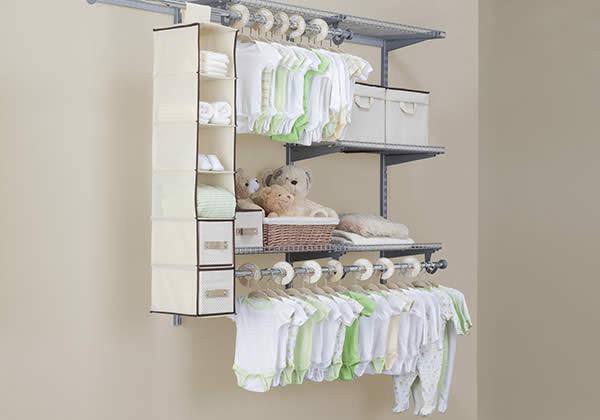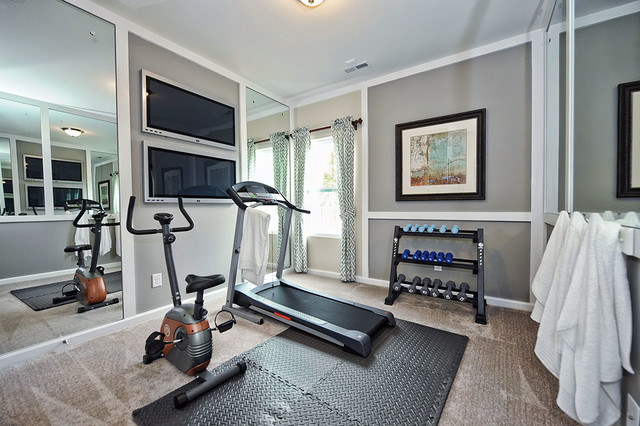| Getting your Trinity Audio player ready... |
Life is a series of milestones, each bringing its own set of joys, challenges, and, yes, organizational needs. As we navigate significant events like welcoming a new baby, sending a child off to college, or transitioning into retirement, our living spaces often need to adapt just as much as we do.
Today, we’re diving deep into how these significant life milestones can impact your home organization and offering actionable tips to adapt seamlessly. So grab a cup of coffee, settle in, and let’s get started!
Welcoming a New Baby: The Nursery and Beyond
Impact on Home Organization
Welcoming a new baby is a joyful milestone that also presents a considerable challenge when it comes to home organization. A new baby isn’t just a bundle of joy; they come bundled with a myriad of items that range from the obvious, like diapers and strollers, to the less apparent but equally crucial, like burp cloths, baby wipes, and endless supplies of baby clothes. Your once organized, adult-oriented home will undergo a transformation into what we can lovingly refer to as “baby central.”
This shift is not just about adding a few items to an already existing room. It’s about reallocating spaces, repurposing furniture, and perhaps, even reconsidering your home’s layout to ensure safety and efficiency. The bottom line? Space will become a premium commodity, and you’ll need to think creatively about how to use every square inch.
Adaptation Tips
- Create a Dedicated Nursery: First things first, identify a room or area that will serve as the nursery. The ideal location is a room close to your bedroom, which makes those frequent late-night feedings and diaper changes a bit more manageable. Think about what the room currently houses and how those items can be relocated or reorganized to make way for the baby’s needs.
- Utilize Vertical Storage: When it comes to baby items, it’s not just about breadth but also height. Baby items may be small individually, but can accumulate quickly. Utilizing vertical space can be a lifesaver. Consider installing floating shelves above the changing table for easy access to wipes, diapers, and creams. Pegboards can be a creative and adjustable solution for holding various baby items. Over-the-door storage can hold less frequently used items, like backup supplies or seasonal baby clothing.
- Think Multi-Functional: As you buy or acquire furniture for the nursery, consider pieces that offer more than just one function. For example, instead of a standard changing table, opt for one with built-in drawers or shelves that can store diapers, wipes, and baby clothes. A crib with built-in storage drawers beneath it can serve as an excellent place to keep extra linens, baby blankets, or even out-of-season clothes. This not only saves you space but also makes the process of caring for a baby more streamlined as everything you need is within arm’s reach.
Planning Ahead
It’s essential to start organizing and baby-proofing a few months before your expected due date. Time tends to fly during pregnancy, and the last thing you want is to be installing baby gates and assembling cribs days before—or even after—the baby arrives. Being proactive in setting up the nursery and other baby-related spaces in your home allows you to undertake the process methodically.
You can take the time to research the best organizational solutions for your unique needs, assemble furniture without rushing, and overall, create a peaceful environment into which you will welcome your new baby. Plus, it’s considerably more challenging to accomplish these tasks when you are navigating the sleep-deprived, emotionally charged early days of parenthood.
By planning ahead, you can make the process less stressful and more enjoyable, allowing you to focus on what truly matters: preparing emotionally and mentally for the new addition to your family.
Sending a Child to College: The Empty Nest Transition
Impact on Home Organization
When a child goes off to college, it leaves a void both emotionally and spatially. Suddenly, you’re left with an empty room and miscellaneous items that no longer have an immediate purpose.
Adaptation Tips
- Sort and Donate: When your child is getting ready to head off to college, it’s the perfect time for both of you to evaluate what truly needs to stay and what can go. Make it a bonding activity where you and your child go through their belongings, deciding what will be taken to college, what should be kept, and what can be donated or sold. Not only does this declutter the space, but it also helps your child practice essential life skills like decision-making and prioritizing. Items that won’t be needed or used in college can find a new home, and you’ll both feel lighter for it.
- Repurpose the Room: After years of being your child’s personal space, their room is about to become available. Instead of letting it sit empty, consider repurposing it. Whether it’s transforming into a guest room, a home office, or a hobby space, think about your needs and how this room can best serve them. Perhaps you’ve always wanted a home gym or a craft room; now might be the perfect time to make that dream a reality.
- Digitize Memories: Over the years, your child will have accumulated numerous pieces of artwork, awards, report cards, and other mementos. While it’s tempting to hold onto all these physical items, they do take up space. Instead, consider digitizing these memories. Scanning artwork, awards, and important papers allows you to keep these items without the physical clutter. It also makes it easier to share these memories with family members and provides a backup in case of loss or damage to the physical copies.
Planning Ahead
Start the process of sorting and repurposing a couple of months before your child leaves for college. This transition isn’t just physical; it’s emotional as well. By starting early, you give yourself and your child time to adjust to the idea of them moving out and becoming more independent.
You also give yourselves time to go through belongings thoughtfully rather than rushing through it last minute, which can be emotionally taxing. This planned approach makes the process more manageable and less overwhelming. By doing a bit each day or week, you’ll avoid a last-minute scramble and have the space to reflect on this significant life milestone. It also provides a gradual emotional adjustment period, giving everyone time to adapt to the upcoming changes.
Retiring and Downsizing: A New Chapter
Impact on Home Organization
Retirement marks a major life milestone that often comes with shifts in lifestyle and priorities. One significant change many people consider is downsizing. The sprawling family home that was once bustling with kids and their activities may now seem too large, filled with rooms that are seldom used.
Moreover, a smaller space is typically easier to manage, which is appealing for those who want to spend their retirement years focusing on hobbies, travel, or simply enjoying a more relaxed pace of life. This transition, while liberating, can be challenging as it forces you to evaluate your belongings critically and think about what you genuinely need and use.
Adaptation Tips
- Inventory Assessment: The first step in any downsizing project is knowing what you have so you can decide what to keep. Create a comprehensive list of all your belongings, breaking it down room by room. This isn’t just a list of big furniture pieces; but should include smaller items like kitchen utensils, books, and even sentimental items. Once you know what you have, it’s easier to identify what’s essential for your next chapter and what’s not.
- Estate Sales or Donations: When you’re transitioning to a smaller space, it’s likely that not everything will fit or even be useful in your new home. Items that aren’t essential can be sold in an estate sale, giving you some extra money that can be put toward your retirement plans. Alternatively, consider donating items to charity. It can be a gratifying process to know that your belongings will go on to serve someone else.
- Smart Storage: A smaller home usually means less storage space, so you’ll need to be creative and thoughtful about storage solutions. Think multifunctional furniture pieces like ottomans that open up to reveal storage or beds with built-in drawers. Use vertical space smartly with wall-mounted shelves and hooks. Your goal is to find storage solutions that are not only functional but also add to the aesthetic appeal of your home.
Planning Ahead
The process of downsizing is not something that should be left to the last minute. Start planning at least six months before your intended move date. This gives you ample time to go through the inventory assessment and decide what you’ll keep, sell, or donate. It allows you to plan estate sales or explore donation options without feeling rushed.
Moreover, it gives you the opportunity to visit your new space multiple times, measuring rooms and contemplating the best layouts and storage solutions. By giving yourself this time, you can make more thoughtful and less emotionally charged decisions, making the entire process smoother and more satisfying.
The Power of Adaptability: Universally Applicable Tips
- Always Label: Whether it’s for baby items, college dorm essentials, or downsizing storage boxes, labels help you quickly identify what’s inside.
- Seasonal Swaps: For all life stages, keep seasonal items stored away and rotate them as needed.
- Hire Professionals: At particularly busy or emotionally charged times, consider hiring a professional organization service like Just Organized by Taya.
Conclusion
Life milestones can be both exciting and nerve-wracking, but one thing is clear—they will affect how you organize your home. By planning ahead and adapting your space to fit your changing needs, you can make any transition smoother and more manageable.
Let Us Help You Adapt
Are you on the cusp of a significant life milestone and feel overwhelmed about how it will impact your home organization? Just Organized by Taya is here to help. We offer tailored solutions for every life stage, including seasonal organization and decorating services. Contact us at 832-271-7608 or book an appointment here to find out how we can help you adapt gracefully to life’s changes.
So go ahead, embrace life’s milestones. We’re here to help you every step of the way!
- The Post-Christmas Reset: What to Do (and What to Skip) This Weekend - December 26, 2025
- The Week-Before-Christmas Survival Guide: Last-Minute Gift Organization Tips - December 18, 2025
- 7 Things in Your Kitchen Right Now That Need to Go - December 16, 2025





